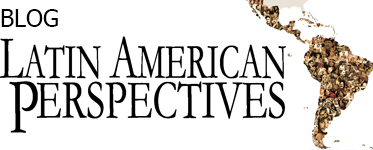Political Report #1465 “Those Who Are Poor, Die Poor” | Notes on The Chilean Elections
by LAP Editor, Jeffery R. WebberPosted by SPECTRE Journal Premature obituaries of Chilean neoliberalism abound on the heels of the December 19 run-off presidential election. Gabriel Boric of Apruebo Dignidad (Approve Dignity, AD) – a coalition of the Frente Amplio (Broad Front, FA) and the Partido Comunista de Chile (Communist Party of Chile, PCC) – secured a surprisingly robust victory over his far-right opponent, José Antonio Kast (aka, JAK), of Frente Social Cristiano (Christian Social Front, FSC) – a coalition of Kast’s Partido Republicano (Republican Party, PR) and the Partido Conservador Cristiano (Christian Conservative Party, PCC).1 Boric took 55.9 percent of the popular vote to Kast’s 44.1 percent, with 1.2 million more people voting in the second round than in the first contest in November. That put voter turnout at 56 percent, the highest of any presidential election since 2012, when voting was made voluntary.2 The result represents a serious setback for forces of the far right in Chile, and, indeed, the region more generally – it wasn’t good news for Jair Bolsonaro in Brazil, for example, who faces elections in 2022 that he was already likely to lose to Luiz Inácio Lula da Silva (“Lula”).Scenes of elation on streets across Chile [...]



